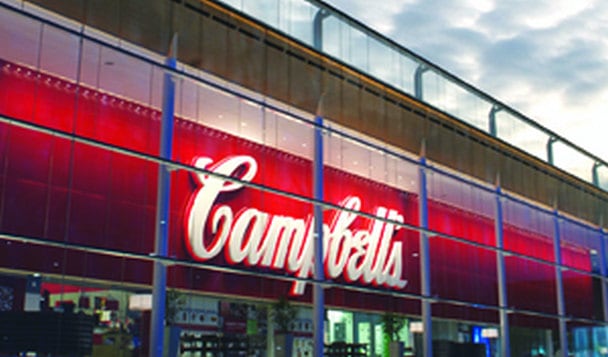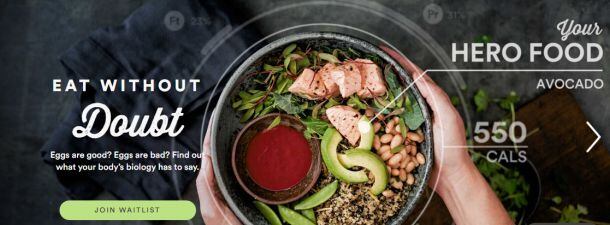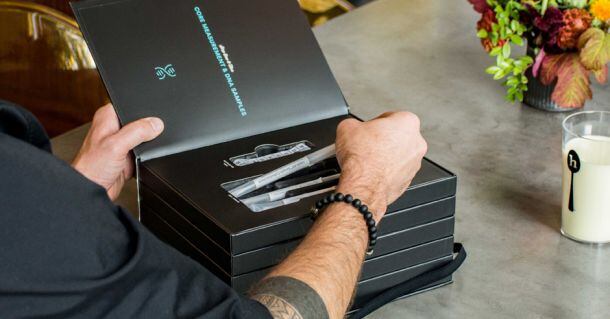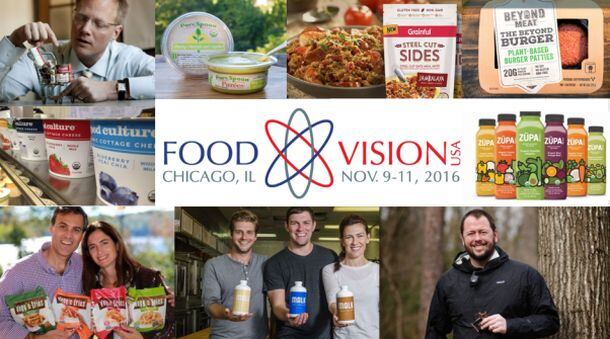We’ll find out next year (Habit launches its first public beta program in January in the Bay area), but one thing we do know is that when advice of any kind is personal, people are more likely to heed it, Habit founder Neil Grimmer tells FoodNavigator-USA.
Put another way, he says, no one disputes that we’d all be in better shape if we simply followed [free] generic public health advice, which tells us to exercise more, booze less, avoid tobacco, and eat more fruit, veg and whole grains. The problem, is that the government has been telling us what to eat for years (via the Dietary Guidelines for Americans), and we’re simply not taking any notice.
“I agree with you. Generic public health advice is great. The problem is, people don’t follow it.”
That said, there’s also a growing body of evidence suggesting that one-size-fits-all dietary recommendations may not create a path to optimal wellness for every individual, just as pharmaceutical companies have known for years that you can give the same drug to three different people and get three different results.
We consider ourselves to be far more than just a meal delivery company
Indeed, the business model of Habit rests on the assumption that if you give people truly customized advice built around their own biology, goals and preferences, and then make it as easy as possible to follow by actually delivering meals tailored to their unique needs right to their doorstep, they will not only pay attention, but pay you – on an ongoing basis – for making everything so convenient, he says.
The million-dollar question for Habit – and every meal or meal-kit delivery company - is whether customers will stick with it once the novelty wears off, and make it a permanent fixture in their daily or weekly routine.
While Grimmer concedes that ‘stickiness’ is critical for such businesses (as all the players are private, we don’t know what the typical churn rate is), Habit is better placed than most to maintain on ongoing relationship with its users because of the personalized element, he insists.
“I don’t think traditional meal kit or delivery services are very ‘sticky’ because they are not terribly differentiated or necessarily very focused on health and wellness; they are just about convenience.
“We consider ourselves to be far more than just a meal delivery company. We’re offering a personal well being platform and a personalized nutrition dashboard via an app or your desktop so we can engage consumers on an ongoing basis, and we’ll keep adding lots of cool features.”

"Before I started [babyfood company] Plum Organics [which was sold to Campbell Soup in 2013 but Grimmer continued to run as CEO] I was an Ironman triathlete and someone who was always thoughtful about food and nutrition," says Habit founder Neil Grimmer.
"But over the course of eight years I gained 50lbs from my triathlete race weight and I guess I had CEO disease! Too much work and stress, not enough good food and sleep. I basically needed to take care of myself, so I set off on my own health journey where I unpacked my own health issues and met luminaries such as LeRoy Hood and Ben van Ommen, and the results were incredible. My goal now is to make this available to every American."
But why pitch this to Campbell Soup?
According to Grimmer: “Obviously through Plum I’ve got a close relationship with Campbell Soup [which is the sole investor in Habit, via a $32m contribution], but [Campbell CEO] Denise Morrison is personally very interested in companies at the intersection of food and technology, and she is really excited about this space.”
A 'minimum level of engagement' will be required for users of the subscription service
Habit customers can wave goodbye after they’ve got their test results and nutrition blueprint, but Habit will be offering ongoing subscription offers – which will require a minimum level of engagement – so that the tests are just the start of the journey, and the relationship, says Grimmer.
He won’t go into details about pricing and subscription plans at this stage, but says plans will be flexible and pricing will be in line with other fresh food delivery services. “Some people want three meals a day, others say breakfast is the real challenge, so they might want us to delivery breakfast for every week-day.
“We’re starting off with a personalized nutrition blueprint and tailored meals, but ultimately Habit will extend far beyond that, although I can’t divulge any more at this stage.”

DNA is just one factor in the ‘personalized’ nutrition arena
But just how personal is Habit’s advice, what data is it collecting, and is the science behind personalized nutrition really ready for prime time?
First of all stresses Grimmer, Habit is not just about ‘DNA diets’ or nutrigenomics, which explores the interplay between genes and diet (how dietary components effect gene expression and how genetic differences between individuals influence how they respond to dietary components from caffeine to sodium).
Habit’s $299 testing kit does include a cheek swab for DNA, but it also includes finger-prick blood test kits to measure an array of things including vitamin levels, insulin and c-peptide, triglycerides, and fasting blood glucose; plus how your body responds to the macronutrients (carbs, fat, protein) in a metabolic challenge meal replacement shake. But it also asks for height, weight, and other measurements, and asks you to outline your personal goals and aspirations (are you looking to get more energy? Lose weight? Train for a marathon?).
Once you’ve sent off your kit to Habit for analysis and received a personal nutritional blueprint, you’ll also get a phone call with a trained dietitian to go over your results and your strategy before you embark on any lifestyle changes, he says.
If there's something in the data that suggests a medical issue, Habit will not provide medical advice, and will also give users the option to download data so that they can show it to a physician.
“We do more than 60 tests and we’ll look [via the DNA test] at things like SNPs [single nucleotide polymorphisms or genetic variations between individuals that may explain why they respond differently to certain nutrients, for example], but we’re not basing a whole diet plan around these.”

The systems biology approach to optimizing wellness: We take a holistic view
Moreover, Habit is not trying to calculate your risk of developing certain lifestyle-related diseases based on a handful of SNPs, which is irresponsible at this stage given that we’re still learning about the complex interplay between genes and environmental factors (of which diet is just one), and we don’t really know the extent to which we can modify this risk though specific dietary interventions.
“The DNA tests in combination with the other results help us understand your architecture, but they are not leading indicators," says Grimmer.
"Everything that the lab tests was chosen because it ties to specific nutrition recommendations, not lifestyle-related diseases.
"We are working with leading systems biologists [TNO principal scientist and NuGo founder Dr Ben Van Ommen is a science partner, while LeRoy Hood and Nathan Price from personalized wellness company Arivale are on the advisory board] that understand that you are a complex ecosystem of parts.
“We take a holistic view, whereas many other companies in this space only look at DNA, or only look at blood. The metabolic challenge [drinking the shake and then doing a blood test] also sets us apart. In my case, for example, I was categorized as a ‘protein seeker' [Habit recommended a lower-carb, moderate-fat, higher-protein diet - so a recommended breakfast could be a naked breakfast burrito bowl with spiced turkey, eggs, avocado, peppers, mushrooms and lime crema while dinner is “meatless” loaf with mashed cauliflower, tomato sauce, green beans and broccoli]."
While Habit might seem similar to Arivale, it’s not really a direct competitor, says Grimmer. “They are casting a wider net, whereas we are focusing on food and nutrition. And we’re not just a recommendation engine. We’re a food company.”
A snapshot of nutrition-related biomarkers that feed / will feed into Habit’s platform
- Core body measurements – BMI, weight, height, waist circumference
- Vitamins A, C, D, E
- Total cholesterol, HDL cholesterol and LDL cholesterol
- Triglycerides
- Blood glucose and insulin
- Carotenoids
- Fatty acids (e.g., omega-3 and omega-6 fatty acids)
- Amino acids
- Sodium, potassium
Select examples of SNPs (single nucleotide polymorphisms) Habit will test for:
● CYP1A2 rs762551 - which relates to caffeine metabolism.
● MCM6_rs182549 and MCM6_rs4988235 - which relates to lactose digestion.
● FTO_rs993609 - which relates to your desire to eat and your predisposition to weight gain.
● TCF7L2_rs7903146 - which relates to your ability to regulate blood sugar.

Personalized nutrition will be a hot topic at Food Vision USA 2016, which will explore whether it can successfully transition from lucrative niche to scalable mainstream.
